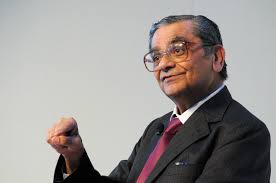“Another damned, thick, square, book! Always scribble, scribble, scribble! Eh! Mr. Gibbon?
– William Henry, Duke of Gloucester, upon receiving the second volume of The Decline and Fall of the Roman Empire from the author, 1781.
Well, what do you know!
This blog won the Best Indiblog Award. To be more specific, of those who cared to vote (around 600), this blog got around 38 percent of the votes. Thanks to each of you who considered my modest attempt worth noting. My sincere appreciation for that vote.
I admit that I am not surprised that some people actually find my writing acceptable. Nor I do not find it entirely surprising that 62 percent who voted did not vote for this blog. I don’t expect to be popular. More about that later. The topic that I concentrate on largely is not a happy one. One does not like to be reminded that one’s country is in dire straits. We see the evidence all around us if we care to just see.
Some people have criticized my point of view. I don’t like criticism. I don’t want to be told that I am wrong. But I need to be told my faults. While I like to be told that I am right, I need to be told even more where I am wrong. I am a pretty smart cookie but I am not so smart as to know all by myself where I screwed up.
Back to the topic of being popular. I think that if one is totally honest, one is not likely to be popular. Which may partly account for the fact that politicians are inveterate liars. They seek popularity and they lie. They lie because they know that people are gullible and that they can get away with transparent lies and blatant falsehoods. People would rather believe in some feel-good fiction than in hard facts.
Given the gullibility of people at large and their need to believe in happy fiction, democracy has a near-fatal flaw built into it. A person who states it like it is is going to be at a disadvantage when it comes to unpleasant truths. And most of the time, a society or an economy confronts hard facts, irrespective of how rich or powerful it is. I recall Walter Mondale telling the hard truth to Americans that taxes will have to be raised, and George Bush, the Elder, said, “Read my lips: No New Taxes.” Later, after having won, Bush went on to raise taxes like nobody’s business.
The poorer the country is, the more its politicians lie. The most adept at lieing win. They have to — because the truth is too awful to bear. Farmers are suffering? Promise them free stuff. Can the country afford it and will it actually make them better off? No and no, but do it all the same because that is what guarantees winning at elections.
India is caught in a trap. Venal politicians lie and the gullible public votes them to power because they would rather hear a pleasant lie than hear the unpalatable truth. Anyone with any sense in their heads would reject them outright but then when were the good and the holy in majority anyway? Democracy assures the rule of the venal over the gullible.
In any event, I will go on scribbling and only time will tell if I am correct in my assessment that we are doomed unless we face some rather harsh reality.
Goodnight, goodbye, and may your god go with you.
PS: I have loads of emails. Please bear with me if you have written and haven’t heard back from me yet. I am going to reply to all my emails.

